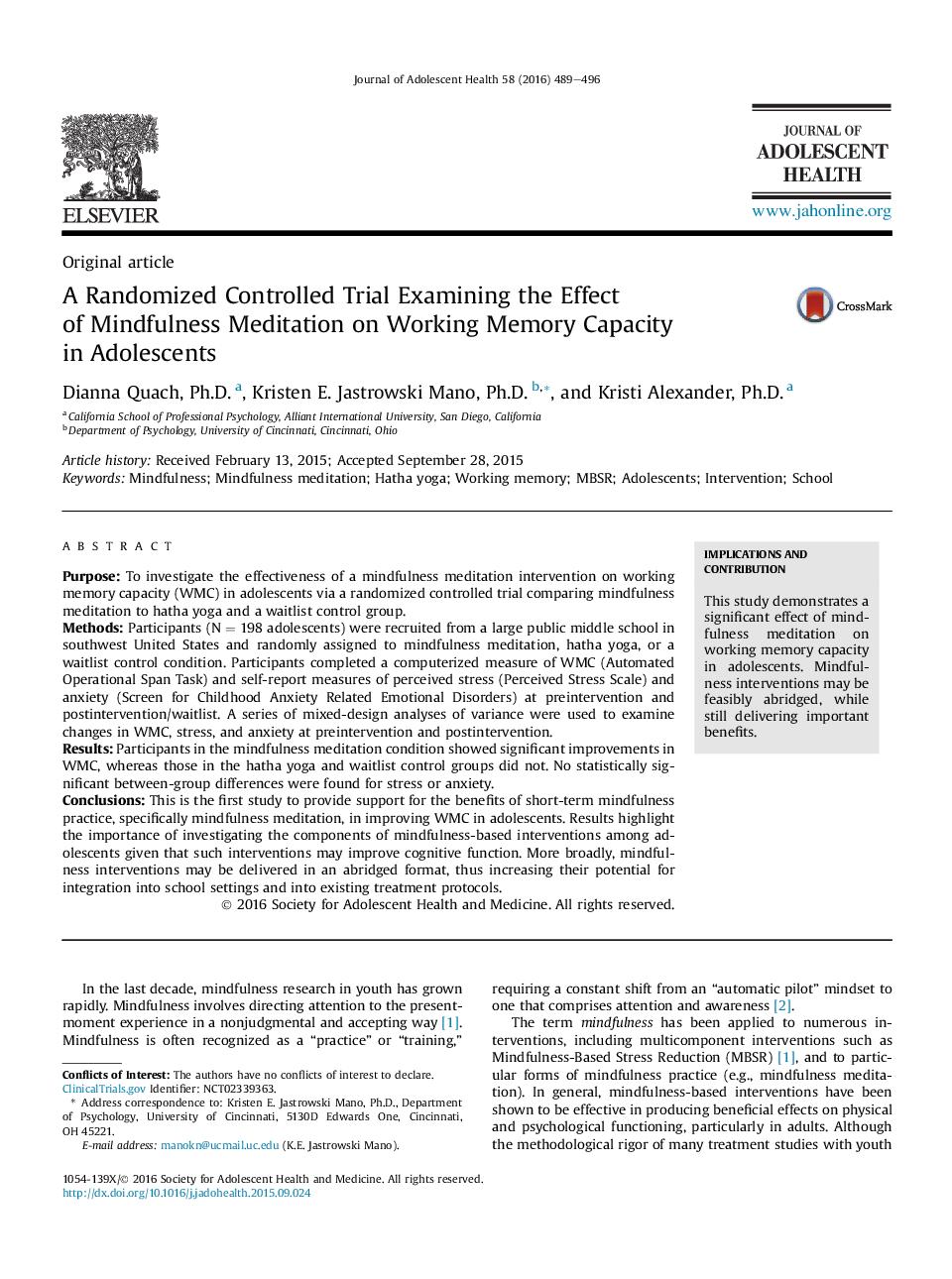| کد مقاله | کد نشریه | سال انتشار | مقاله انگلیسی | نسخه تمام متن |
|---|---|---|---|---|
| 1077927 | 950398 | 2016 | 8 صفحه PDF | دانلود رایگان |
کلمات کلیدی
مطالعهی حاضر
روشها
شرکتکنندگان
طراحی مطالعه و مداخلات
آنالیز دادهها
نتایج
خصوصیات شرکتکنندگان
شکل 1. فلوچارت شرکتکنندگان
جدول 1. خصوصیات جمعیتشناسی نمونههای مورد مطالعه
پیامدها
بحث
شکل 2. تغییر در ظرفیت حافظهی کار (وظیفهی عملیاتی خودکار) در گروههای مختلف (مدیتیشن ذهنآگاهی، هاتا یوگا، کنترل در لیست انتظار) از ابتدای مطالعه تا بعد از مداخله. نوارهای خطا نشاندهندهی یک خطای استاندارد بالا و پایین مقدار میانگین هستند.
جدول 2. آمارهای توصیفی متغیرهای وابسته بر اساس شرایط گروه در ابتدای مطالعه و بعد از مداخله
محدودیتها و قوانین کلی برای تحقیقات آینده
PurposeTo investigate the effectiveness of a mindfulness meditation intervention on working memory capacity (WMC) in adolescents via a randomized controlled trial comparing mindfulness meditation to hatha yoga and a waitlist control group.MethodsParticipants (N = 198 adolescents) were recruited from a large public middle school in southwest United States and randomly assigned to mindfulness meditation, hatha yoga, or a waitlist control condition. Participants completed a computerized measure of WMC (Automated Operational Span Task) and self-report measures of perceived stress (Perceived Stress Scale) and anxiety (Screen for Childhood Anxiety Related Emotional Disorders) at preintervention and postintervention/waitlist. A series of mixed-design analyses of variance were used to examine changes in WMC, stress, and anxiety at preintervention and postintervention.ResultsParticipants in the mindfulness meditation condition showed significant improvements in WMC, whereas those in the hatha yoga and waitlist control groups did not. No statistically significant between-group differences were found for stress or anxiety.ConclusionsThis is the first study to provide support for the benefits of short-term mindfulness practice, specifically mindfulness meditation, in improving WMC in adolescents. Results highlight the importance of investigating the components of mindfulness-based interventions among adolescents given that such interventions may improve cognitive function. More broadly, mindfulness interventions may be delivered in an abridged format, thus increasing their potential for integration into school settings and into existing treatment protocols.
Journal: Journal of Adolescent Health - Volume 58, Issue 5, May 2016, Pages 489–496
